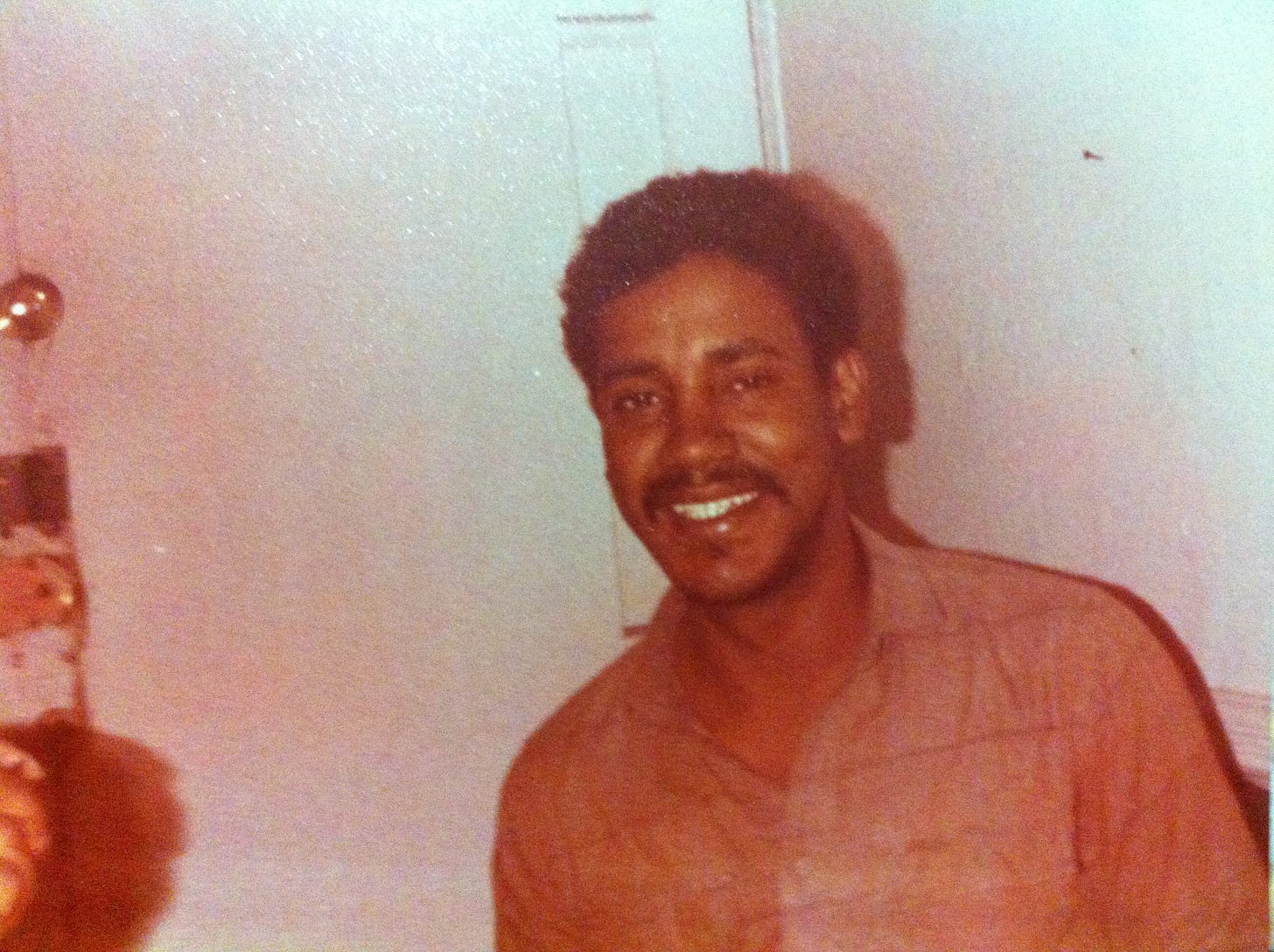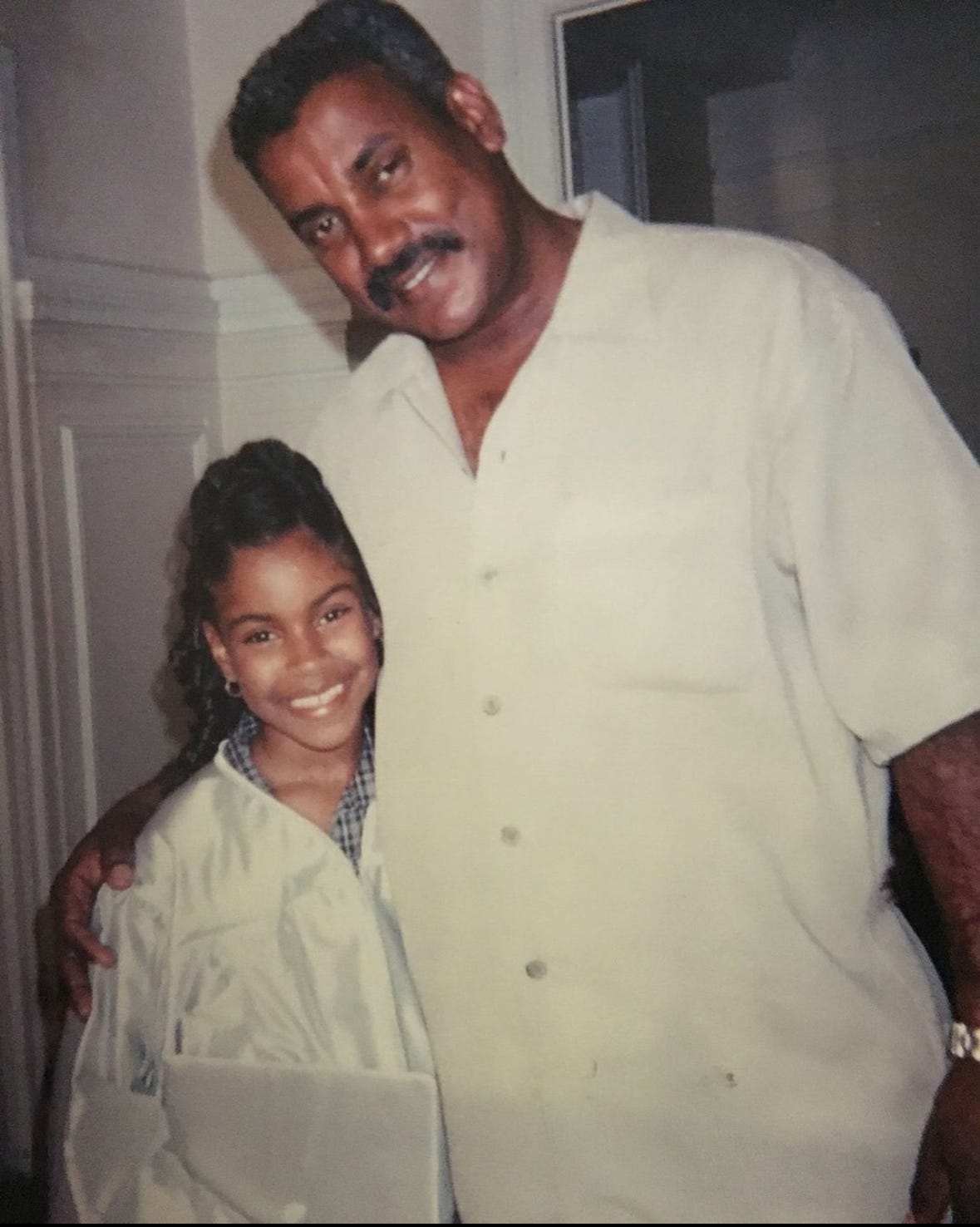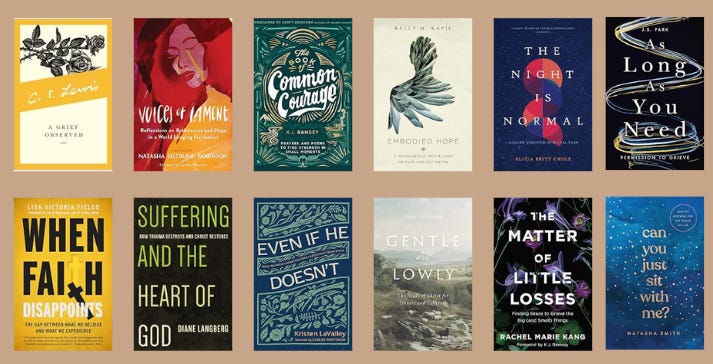Something that is both the privilege of loving and the pain of losing.
let's talk about grief (23 years after the loss of my dad)
Most of us acknowledge that all we experience, see, and have in life - is very much temporary. For some, that’s a tough truth to accept and for others it brings great comfort.
I’m not sure on what side of the spectrum I fall in when it comes to that but I have found the one thing that doesn’t feel temporary in life but more-so everlasting is grief.
It’s the one thing in life that feels like it has no end and has no rhyme or reason on who it reaches. And although we won’t experience grief in heaven/the new earth and new heaven, it’s still one of the few, if not only things that lasts to our very last breath.
For the most part, we can’t ‘heal away’ grief. Most humans can’t escape some sort of grief. And it’s something that doesn’t have a finish line.
In a bit of solemn reality, grief can feel like an endless road.
So what do we do with this?
Something that doesn’t really have an end point, easy solutions, or preventative measures?
I think the response is ‘welcome it’.
This may not be the ideal or most comforting answer but perhaps it’s the one God is inviting us to draw near to. Let me explain. If we don’t welcome grief, then we will likely ignore or suppress it. According to an article from Psychology Today, written by Jason N. Linder, PsyD. Linder writes, “For decades now, research has suggested that emotional suppression can be counterproductive in most cases. Emotions are meant to come out and at least be heeded and attended to. Built-up, suppressed emotion usually creates physical and emotional health problems in the body, like pains, aches, and frustration, and drains us of vital physical and mental energy. It can also harm relationships, as we bond through sharing our emotional experiences with each other. Suppressed emotion can also create physical and emotional health problems.”
Suppression may feel like the easiest route but it’s not the healthiest. And we don’t just know this because of science but we see it in scripture too.
We have an entire book of the Bible that embraces the reality, health, and benefits of sharing, feeling, and noticing our emotions. There’s obviously unhealthy ways of doing this but the authors of the book of Psalms give us 150 examples of:
how expressing our emotions is good for our soul, mind, and heart
and how God actually cares about our emotions and wants to hear us express them.
If that wasn’t true then God could have decided that the book of Psalms would not be a part of the Bible but emotions doesn’t scare Him, so they shouldn’t scare us either. Emotions are the very things that entail grief. Often those emotions are sadness, frustration, despair, apathy, anger, disappointment, angst, loneliness, numbness, but also and thankfully - LOVE.
Andrew Garfield, the gifted actor who’s been in several well known movies, recently lost his mother and has been sharing about how he feels about it in public interviews. In one of those interviews, he said:
“I hope this grief stays with me because it's all the unexpressed love that I didn't get to tell her.
(picture of my Father, Luis Gustavo Perreaux Sr., and I at our home in Harlem, NYC after my 5th grade graduation - circa, June 1999)
Unexpressed love is a narrative I’ve been familiar with since very young. I lost my father on November 12th, 2024 (23 years ago from today) from a plane accident (Flight 587) heading to the Dominican Republic (out motherland) that was leaving from JFK and didn’t make it’s way beyond Rockaway Beach, Queen before it crashed.
How ironic is life, a man who loved the beach and came from and island took his last breath on one but not on purpose.
My unexpressed love for my father continues even if his breath doesn’t. It continues with how I think about him, miss him, picture him in big moments of my life, lament his absense in painful moments of my life, and hope he is proud of me in celebratory moments of my life. Unexpressed love is painful but it doesn’t have to make us stuck or bound, but rather - it’s something that can be welcomed.
I believe when the world speaks the truth, even the ‘secular world’, it’s because it’s proclaiming something God has already said, established, or displayed. In the WandaVision show that helped most of us survive the pandemic, Vision (her partner/husband who is not a real human), says this,
“It's all I've ever known. I've never experienced loss because I have never had a loved one to lose. But what is grief, if not love persevering?”
This show itself was centered around what can happen (particularly to a superhero) when someone doesn’t process their grief. Vision, in response to Wanda shares, how grief cannot exist if love didn’t exist first. This has been the cycle of life since the garden. God created a humanity He loved and grieved that they would now experience shame because they believed the snake. God loved humanity so much that He sent His only begotten Son to suffer for this humanity He deeply loved.
Love and grief are acquainted with one another, or atlest they should be.
When we acknowledge that we grieve because we loved that person, place, or thing - then we can live a life that welcomes grief by way of honoring, celebrating, lamenting, and processing what we have lost - which makes life full and honest. This also makes life painful and hard but I rather live a life where I embraced all the emotions God wants me to express to Him than limit my relationship with God by not accessing some emotions because their hard to sit with.
I would say I’m a veteran when it comes to grief. Since I was 7 years old I have lost family members, friends, homes, church communities, hopes, treasured gifts, and even memories that have away from my brain. All things I’ve had the privilege of loving but also the pain of losing.
And there’s also griefs I’ve experienced because a LACK OF LOVE that exists within this world. This looks like grief that has come from living as a Black Latina who has experienced racism and sexism. This has come by being a mother of a son who’s autistic and seeing how unprepared the world is to dignify my son. This has come by living in a country who elected a president that is undeserving of the power he’s about to get. This has come by witnessing global pain, genocides, and dehumanization that people want to try to justify. Let’s just say - grief and I, are good friends.
And somehow I’m still here with some level of hope and I think the reason for that is because God is still with me.
We are entering the season of Advent and much of the concentration around this season is reflecting on this idea that God is with us as Immanuel.
But not just with us to save, convict, correct, build, and grow us.
BUT ALSO - with us to comfort, lament with, carry, help, and just be with us.
Jesus is not just the God that wants to give us eternal salvation but also be the God who provides us His presence in our ever-present suffering.
But in order for Him to do that, we must ‘welcome’ grief. As Robert Frost says,
“The way out is through.”
And maybe we won’t get ‘out’ of it until eternity but while we are in it, we get to walk through it with Jesus and let Him be our sanctuary in the suffering.
At least that’s my plan just for today as I grieve being without my dad for 23 years now. Loving him by remembering him, eating his favorite meal, and spending time with the love of his life - my mama.

This is how we grieve, love, and make room for God’s presence. I hope you can welcome grief while you hope in Immanuel.
your grieving sister/sanctuary, Pricelis Perreaux-Dominguez
As I shared before, I don’t have all the answers, but I have found these books to a balm, resource, and help in the topic/area of grief and suffering:
And this is a note for those who want to be a healthy support/presence with those grieving and suffering:
“In our suffering, we can lose sight of God and God’s goodness. In our isolation and loneliness, we can find all the reasons not to believe God, his Word, or even his people. This is why grief and suffering should be collective. First Corinthians 12:26 says, “If one part suffers, every part suffers with it; if one part is honored, every part rejoices with it.” Paul is talking to the church in Corinth about unity and diversity within the Body of Christ, and one of his closing remarks is this verse. He says that everything should be done unified, both the rejoicing and the suffering. We are really good at rejoicing together, and I believe we can also get really good at suffering together.” - (An excerpt from ‘Chapter 5: A Call to Collective Suffering, or Practicing Presence’ of my new book Being a Sanctuary: The Radical Way of Being a Sacred, Soft, and Safe - which you can learn more about or purchase HERE.





Thank you Rachael 🤍 these words mean a lot. Love you sis.
Several times this week I've seen things posted about not suppressing one's emotions. Apparently this is something I needed to see as I continue to heal. Thank you for sharing. I almost lost my dad this past September. Miraculously he is doing so much better and I don't need to face that time of loss quite yet. I think I need to learn now how to process things in a healthy way so that later when grief comes I can make it out alright.